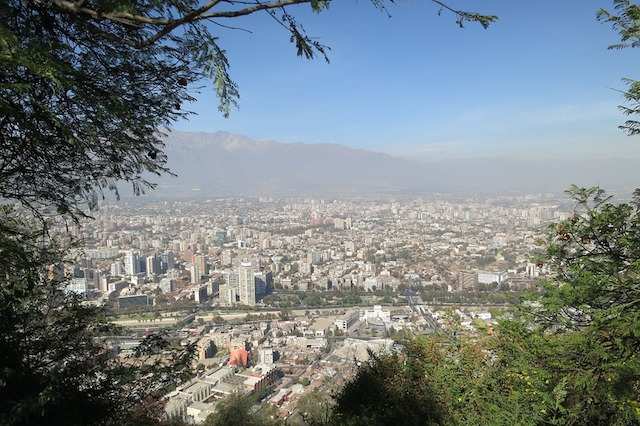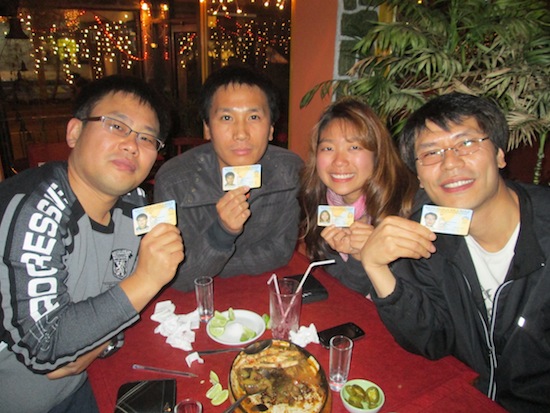How to Navigate Chilean Government Bureaucracy

I tried not to punch a wall.
Really, I did.
The officer looked at me with her unforgiving eyes in the Civil Registry office. She told me in Spanish that I need to register in their system over again. It would have been totally fine except she has already asked me to do that before.
Twice.
Welcome to Chilean Bureaucracy.
Tramite is a pretty common term in Chile. Its most innocuous meaning is paperwork but we all know what that really means. Evil vindictive pointless bureaucracy is what it should say. Everyone in Chile undergoes tramite and woe to those who get stuck in them.
Like me.
In order to register as a temporary resident here in Chile, most foreigners apply for what is called a carnet. A carnet is an ID that registers you in the government system. Think of it as your country’s ID, passport or Social Security number. All locals are required to have them and you cannot do anything in Chile without it. Unless you’re a new born baby, there comes a point where you have to go through long hellish period of paperwork to get that bit of plastic.
Apparently, placing surname first on your visa does not sit well among Chilean bureaucrats.
Take my case for example. I was asked to travel to the capital of Santiago to fix an “error” with my family name. Apparently, placing surname first on your visa does not sit well among Chilean bureaucrats. Mind you, it’s two hours travel to Santiago from my city. So I went ahead and did that. Then when I went back to the Civil Registry, I was told to go to the police to register the new placement of my surname.
Strike one.
Then I had to re-register and give all my papers and personal information with the Civil Registry again. Three weeks later, they found out that the date of the entry stamp wasn’t clear on my passport. They told me to go again to the police to get a travel certificate to prove which date I had arrived.
Strike two.
When I returned from the police station, the Civil Registry officer told me I have to pay and register again from scratch as they had wiped out all my records from their system.
Strike three.
This is the part where I want to punch a wall.
I’ve never been hassled so much for entering a country.
So what did I do to keep from going insane? Here a few tips that will help you face upcoming bureaucratic challenges in any country.
How to Navigate Chilean Government Bureaucracy
1. Know bureaucracy is everywhere.
Face it, you cannot escape from it. It’s just that some countries have it worse than others. When I used to live in China, I remember going to the bank and being asked to get my old passport to prove my identification. They wouldn’t accept my new one because my latest passport number didn’t match the one in their system even though my photo and all relevant information was in my new passport.
2. Don’t judge it from your own cultural perspective.
That makes it worse. See it through the locals’ cultural perspective. Remember, you are living in another country and they have their own system and their own way of doing things. It is how it is.
3. Take a deep breath and count 1-20.
This helps you clear your mind and prevent you from lashing out immediately about the situation. I know sometimes you can’t take it anymore. It’s important to take a step back. Later, you can go back to the situation and assess it objectively. See it from their point of view.
4. Treat yourself.
After stressful events like these, go out and treat yourself. Have a massage. Go to a nice restaurant of your choice. Call a girlfriend and watch a movie. Take the tramite as an excuse to splurge.
5. Look on the bright side.
Aside from building my patience and cultural understanding, good things did come out of all that hustling. I got to explore the capital Santiago a bit more. And during my second trip to the police station, I happened to meet a wonderful group of Koreans who were also undergoing similar tramite woes.
They ultimately became my good friends in Chile. Never mind they don’t speak much English. In the end, we all got our Chilean carnets and celebrated with some shoju (Korean rice wine) and danced to Gangnam style.
Who says language should be a problem?

How to Navigate Chilean Government Bureaucracy
Related Reading
Dating in Chile: A Conversation with Jennifer Ramos
Why Santiago’s La Vega is a Market Like No Other
Chile’s National Holidays: Family, Fondas, and Fun
Why Did I Move to Chile? “¿Por qué no?”
A Long Weekend in Chiloe, Chile
Travel Chile: A Conversation with Rebecca Murphy
Have you traveled to Chile? What were your impressions? Email us at editor@pinkpangea.com for information about sharing your experience and advice with the Pink Pangea community. We can’t wait to hear from you.
Photo credits for How to Navigate Chilean Government Bureaucracy by Kate Yu and Unsplash.









Hi Hironori,
The racism is there but not as bad. For example, they do not discriminate Asian teachers as much to teach English unlike China. But due to the small populations of Asians in Chile (unlike Peru which has tons of Asians), they’re not used to it and can sometimes stare. They also have funny stereotypes of Asian like they think we all do kung-fu. 🙂
Hows racism in Chile?